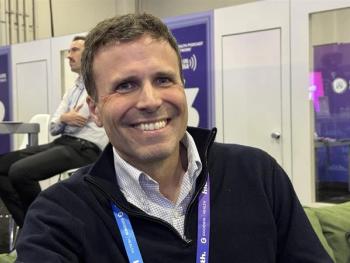
Mental Health Apps: Do They Work? Are They Safe?
An analysis of the evidence for these increasingly popular mHealth apps.
The toll that depression, anxiety, psychosis and related disorders have taken on society is immeasurable. One can, of course, quote
While these figures are disturbing, the full impact of mental disease really strikes an emotional chord when you know friends, family or business associates who battle these problems. These disorders wreck lives by destroying promising careers, ending marriages, threatening domestic abuse and much more. Unfortunately, with so many individuals suffering from psychiatric problems, it is virtually impossible for every affected patient to receive the one-on-one professional care they need. There just aren’t enough mental health professionals available.
With that in mind, many patients are turning to online and mobile health (mHealth) resources for help. Similarly, several psychiatric experts are taking a closer look at these digital tools to evaluate their potential value, as well as any possible adverse effects.
A Closer Look at Mental Health App Evidence
The evidence on mental health apps and chatbots is mixed.
They found that the program delivered measurable improvements on the nine-item Patient Health Questionnaire, the seven-item Generalized Anxiety Disorder scale and the Positive and Negative Affect Scale among college students. It is important to note, however, that these students had not been officially diagnosed with depression or anxiety.
A more
How Mental Health Apps Work
One of the challenges for clinicians, patients, and consumers seeking mobile apps that address mental health is that many rely on unproven therapy techniques. Woebot is based on the principles of CBT, one of the few evidence-based approaches to mental health that has actually generated verifiable results. However, a
Among the many mobile apps targeting the mental health community, Deprexis stands out. It too uses CBT, as well as other well-documented approaches to mental health. It generates simulated conversations that last up to an hour.
A
A
While Deprexis has attracted much attention among mental health professionals, it’s by no means the only mobile app that holds promise.
A closer look at this meta-analysis, including several subgroup analyses, reveals important insights. The RCTs that looked at smartphone apps lasted from four to 24 weeks, and depressive symptoms were measured using a variety of well-documented tools, including the Depression Anxiety Stress Scale, the Patient Health Questionnaire (PHQ-9) and the Beck Depression Inventory II scale. The meta-analysis also found that the mobile apps were only effective in users who had self-reported mild-to-moderate depression. They had no significant impact on patients with major depression, bipolar disorder or anxiety disorders.
Some of the subgroup analyses were unexpected. Apps that did not involve any in-person feedback generated statistically significant moderately positive effects, while those that did include human feedback did not. Apps that delivered their content entirely through a mobile device appear to have been more effective than those that were not self-contained, though the difference was just short of reaching statistical significance. Finally, those apps that offered cognitive training had less of an impact on users than those that focused more generally on
mental health.
An
A
Although RCTs are considered the gold standard to determine the effectiveness of any medical treatment, that doesn’t mean we should disregard less rigorous types of evidence. A mobile app called Mobilyze, for instance, which was developed by the Center for Behavioral Intervention Technologies at Northwestern Medicine, may have merit according to a
Don’t Ignore the Therapeutic Relationship
There may be significant research support for mental health apps, but clinicians and the public need to keep in mind that a mobile app can never replace the therapeutic relationship that develops between a mental health professional and their patients. While standalone apps may benefit the casual user experiencing mild depressive symptoms, it is unlikely it will be a substitute for the kind of trusting, respective alliance that occurs in a doctor/patient relationship.
Torous emphasizes the importance of reframing mental health apps so that they can serve as complementary tools to strengthen the bond between therapist and patient rather than destroy it by encouraging patients to go it alone with an independent computer program — no matter how lifelike and empathetic its conversational interface may seem.
Professional Criteria Can Help Evaluate Apps
Clinicians in need of assistance as they sift through the many mental health apps can turn to the American Psychiatric Association for a
While APA does not recommend specific phone apps, its five-step evaluation process can help narrow down one’s choices. The association recommends first collecting background information and then assessing the app’s risks, including the program’s potential to compromise patient privacy. Then review the evidence on effectiveness, evaluate its ease of use and finally evaluate its clinical integration — including interoperability — and how well it strengthens the therapist/patient relationship.
APA explains, “the last step in the model is interoperability. This is the topmost level, as the ability to share data only matters if this is an app that you and the patient want to use… if it is safe and secure… has some evidence base … and is easy to use…. The reason why interoperability becomes important in this model is because apps should not fragment care and the patient and psychiatrist should be able to share and discuss data or feedback from the app as appropriate. In some cases, the ability for apps to share data may not be relevant. For other apps, however (e.g., mood trackers and medication management), ensuring that such data can be easily shared and accessed by those who need to see it is an important factor to consider.”
Get the best
Paul Cerrato has more than 30 years of experience working in healthcare as a clinician, educator and medical editor. He has written extensively on clinical medicine, electronic health records, protected health information security, practice management and clinical decision support. He has served as editor of Information Week Healthcare, executive editor of Contemporary OB/GYN, senior editor of RN Magazine, and contributing writer/editor for the Yale University School of Medicine, the American Academy of Pediatrics, Information Week, Medscape, Healthcare Finance News, IMedicalapps.com and Medpage Today. The Healthcare Information and Management Systems Society (HIMSS) has listed Mr. Cerrato as one of the most influential columnists in healthcare IT.
John D. Halamka, M.D., leads innovation for Beth Israel Lahey Health. Previously, he served for over 20 years as the chief information officer (CIO) at the Beth Israel Deaconess Healthcare System. He is chairman of the New England Healthcare Exchange Network (NEHEN) and a practicing emergency physician. He is also the International Healthcare Innovation professor at Harvard Medical School. As a Harvard professor, he has served the George W. Bush administration, the Obama administration and national governments throughout the world, planning their healthcare IT strategies. In his role at BIDMC, Dr. Halamka was responsible for all clinical, financial, administrative and academic information technology, serving 3,000 doctors, 12,000 employees and 1 million patients.
Related







































